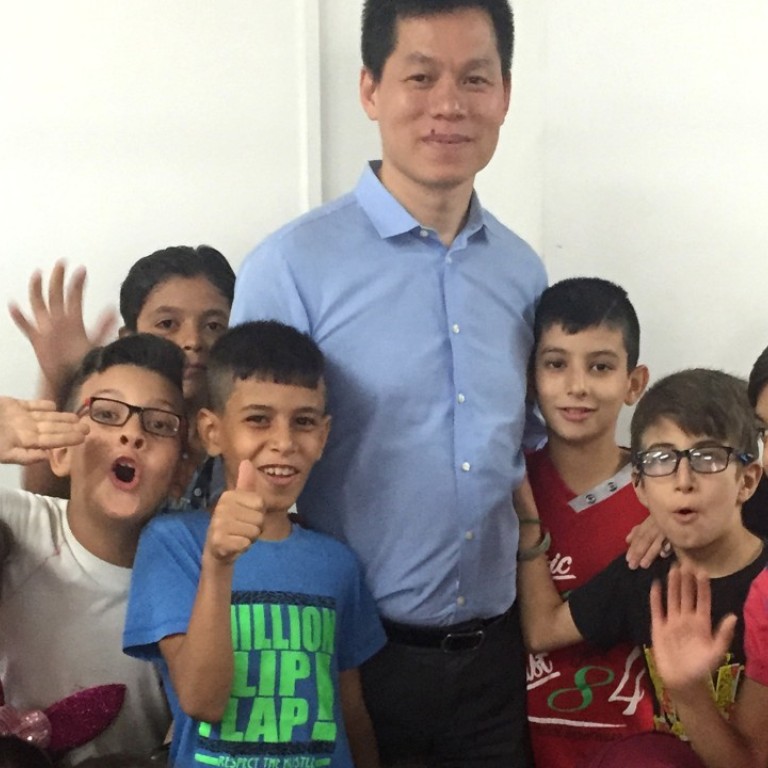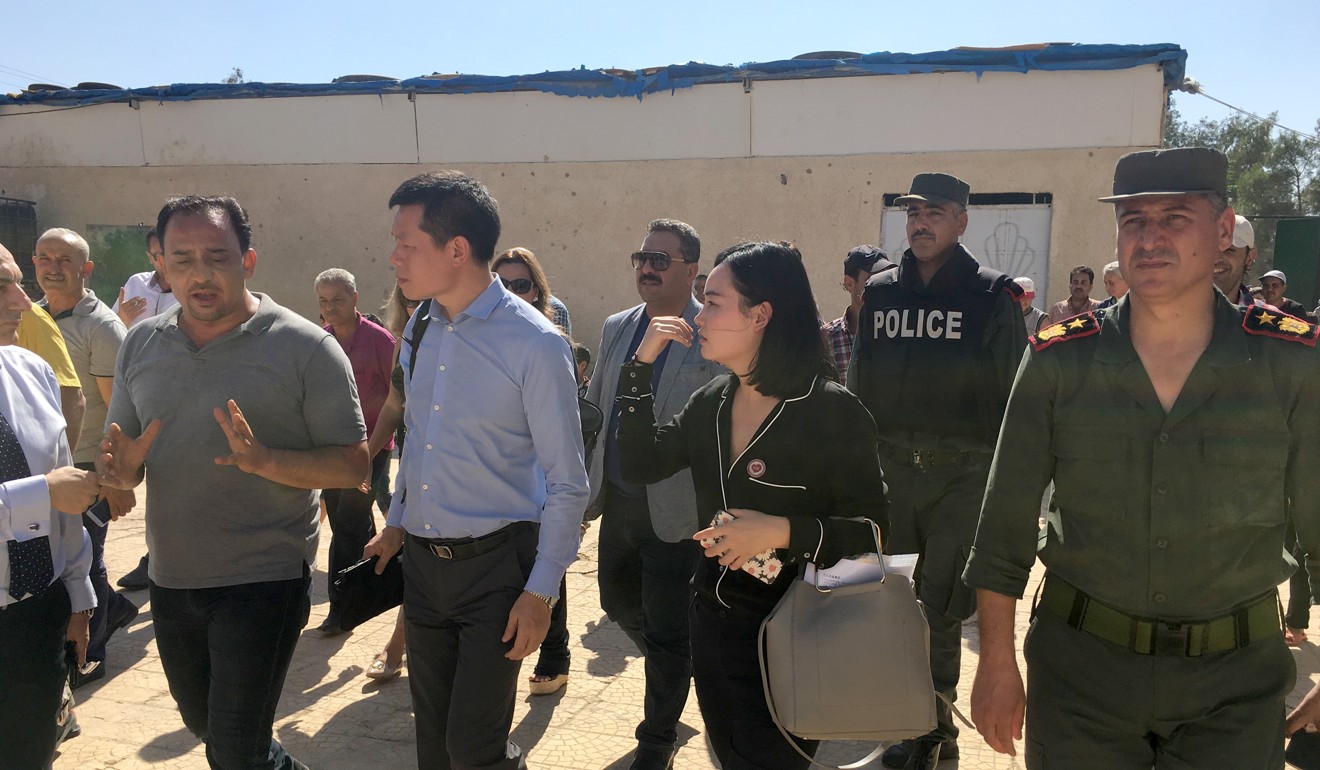
Meet the Chinese charity worker helping disabled children walk again in Syria
Philanthropist Zhuang Zhi says China must engage in humanitarian work as it grows in stature on the world stage
When Chinese philanthropist Zhuang Zhi saw a photo of a young Syrian boy sitting dazed and bloodied in an ambulance after an air strike in Aleppo two years ago, he knew he had to do something to help.
Zhuang runs a small non-profit group called LoveZone Charity Foundation based in Suzhou, eastern China’s Jiangsu province. Up until two years ago, its focus had been domestic but the photo of the young boy was a turning point.
“I had never been to Syria but I wanted to do something to help,” he said.
So Zhuang contacted the Syrian embassy in China and, after a meeting with ambassador Imad Moustapha and his wife Rafif al-Sayed Moustapha, decided to concentrate on supplying urgently needed prosthetic limbs to children.
Syria’s seven-year civil war has left more than 1.5 million people living with permanent, war-related impairments, including 86,000 people who have lost limbs, according to figures released by Unicef in March.
Zhuang said that as many as 20,000 children may have lost limbs, but only between 500 and 1,000 could be supplied with prostheses each year by the handful of services operating inside the country.
“In the beginning I thought access to education was important for children in Syria, but after talking to the ambassador and his wife, I realised that regaining mobility was a more urgent need for some children,” he said.
As a first step, Zhuang’s charity sent about 300,000 yuan (US$47,300) in public donations to charities in Syria providing prosthetic services on the ground in January last year.
Then in August, Zhuang and his team visited Damascus, a trip that only reinforced his desire to help.
They came up with the ambitious goal of setting up a factory in Damascus that could make artificial limbs for about 3,000 children a year. The charity aims to raise about US$1.5 million to build and maintain the factory, and has partnered with the Chinese Red Cross Foundation and Syrian Arab Red Crescent to realise the project.

The Chinese Red Cross Foundation is already active in Syria, working with the Syrian Arab Red Crescent to launch a first aid project last year. The project is part of a programme called the CRCF Silk Road Boai Fund, which provides humanitarian aid for countries along the route of the “Belt and Road Initiative”, a Chinese government trade drive.
So far, Zhuang’s charity and the Chinese Red Cross Foundation have raised about 700,000 yuan from more than 24,000 donors in China but it’s still a long way from Zhuang’s goal of raising US$1.5 million by the end of June.
Zhuang said the Chinese public’s reluctance to take part in international humanitarian work was so far one of the biggest challenges to raising funds.
“As we promote our campaign online, many people criticise us and accuse us of turning a blind eye towards the suffering of children in our country,” he said. “But in fact we have been [helping children in China] for years … There should not be a boundary for love and kindness. And China has also received international help after major earthquakes.”
Zhuang said that as China became more prominent on the world stage, it should also assume more responsibility for humanitarian work.
“When we were in Syria, many people came to thank us for supporting them. In general they had a good impression of China,” Zhuang said.
“Philanthropy is a much more effective way to improve our country’s international reputation than setting up Confucius Institutes.”

